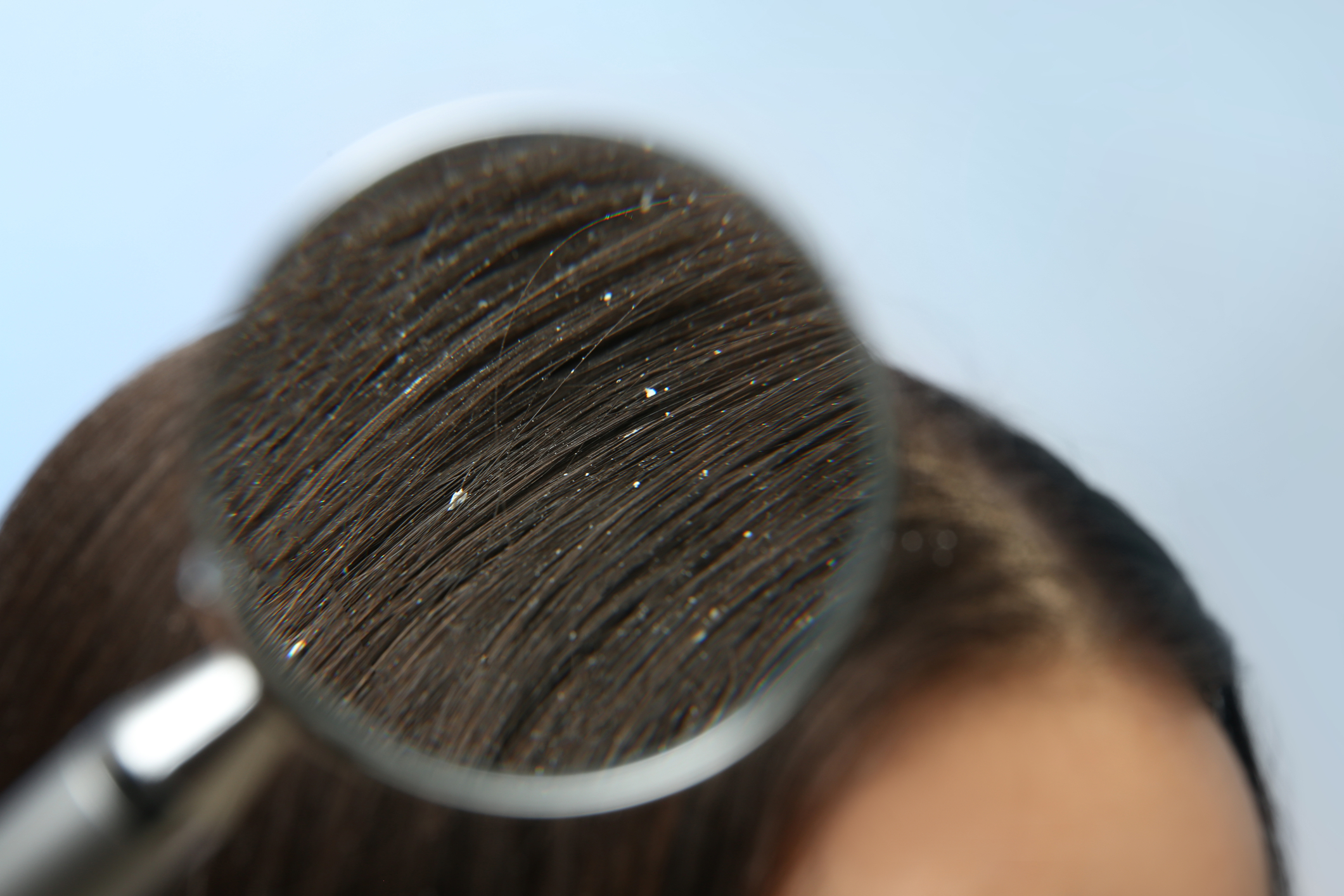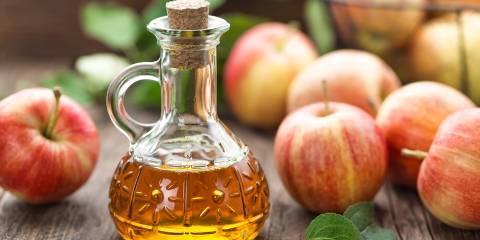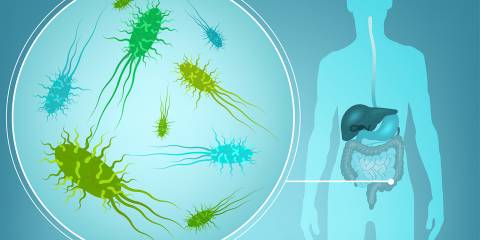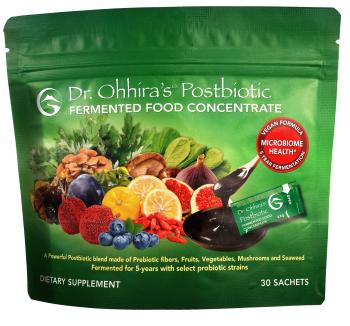Noticed an embarrassing amount of flakes on your scalp or shoulders lately? Dandruff may be distressing, but there are natural ways to control the condition.
First, consider that your body may be trying to tell you something. Fungal or yeast infections and poor circulation may lead to dandruff. Emotional stress and food allergies can exacerbate the condition.
“Stress increases the stress hormone cortisol, which can flare dandruff,” said Kenneth Beer, MD, FAAD.
People with oily hair also tend to be more prone to this condition, with flaking becoming more problematic in winter because of cold outdoor weather and dry indoor heat.
The Anti-Dandruff Diet
If you’re troubled by dandruff, avoid animal proteins, dairy products, citrus fruit, and foods high in hydrogenated and saturated fats, salt, and sugar. Choose mostly fresh fruits and vegetables, whole grains, and legumes. Foods rich in selenium—Brazil nuts, seafood, whole grains, wheat germ, and brewers yeast—may also help minimize dandruff.
Deficiencies in B vitamins and essential fatty acids may also be culprits. Try taking one tablespoon of black currant seed, borage, evening primrose, or flaxseed oil daily. Look for a multivitamin with a complete B complex (50 mg), including 3 mg of biotin twice daily, and 25 mg of zinc.
Other useful nutrients include 3,000 mg of vitamin C in two or three equally divided dosages and 800 international units of vitamin E.
Dysbiosis in the gut microbiome is associated with dandruff. Probiotics like Lactobacillus acidophilus and Bifidobacterium bifidum can help control dandruff and fight yeast infection.
Kelp provides trace minerals needed for healthy hair and scalp; take 300 mg in the morning and 150 mg with lunch daily.
What Causes Dandruff
Dandruff is commonly caused by seborrheic dermatitis, a disorder of the sebaceous glands found on the scalp as well as the skin. These tiny glands secrete sebum, an oily, skin-lubricating fluid. If too much is produced on the scalp, however, sebum dries into flakes and can lead to scaling.
Dandruff may also be the result of a yeast-like fungus that feeds on oils secreted by hair follicles. Look for antifungal shampoos containing rosemary or thyme. Neem is another antifungal herb that can provide relief.
“Neem’s antifungal action can help to treat the cause of dandruff while its anti-inflammatory properties soothe and reduce redness of the scalp,” said Autumn Blum, CEO, founder and formulator of Organix-South. “Although dandruff is often associated with oily hair, if you dry out the scalp, the problem will only get worse.”
Blum also recommends products with other botanicals.
“Aloe moisturizes without adding oil,” she said. “Chamomile is a soothing cleanser that doesn’t dry your scalp. Arnica is a nourishing herb that conditions and soothes the scalp, while pine bark enhances circulation to promote natural healing. Holy basil helps balance excess oil production. Cherry bark is soothing on the scalp and keeps hair soft and manageable.”
Tea tree oil also provides antifungal action.
“A single-blind study examined the use of 5 percent tea tree oil shampoo or placebo in 126 people with mild to moderate dandruff. After four weeks, the tea tree oil shampoo significantly reduced symptoms of dandruff,” said Laura Setzfand, vice president of marketing for Nature’s Gate.
Applying apple-cider vinegar to affected areas is another option.
“Vinegar helps restore the proper acid/alkaline balance of the scalp and kills the fungus,” said Setzfand.
Combine two parts apple-cider vinegar to one part water. Heat the mixture to a comfortably warm temperature and apply to your scalp. Wrap a towel around your head and rinse after 30 minutes.
Improve Scalp Circulation
Also, once a week massage the scalp with your choice of neem oil, neem cream, calendula lotion, vitamin E oil, almond oil, or jojoba oil. Allow the oil to remain on the scalp for several minutes to half an hour and then shampoo. The oils can help relieve itching.
Jojoba oil is a pure and natural extract. It can penetrate and moisturize skin without any oily residue. It restores moisture to the scalp and eliminates dry flakes.





